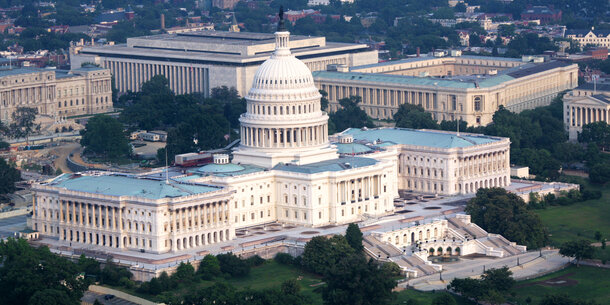For over a century, U.S. presidents have used national emergency declarations to access extraordinary powers, often without meaningful congressional oversight. While the National Emergencies Act (NEA), enacted in 1976, was meant to safeguard against executive overreach, its provisions have failed to rein in presidential use of emergency powers. There are more than 40 active national emergency declarations in place today, unlocking powers that are highly susceptible to abuse.
A bipartisan coalition of organizations has called on congressional leaders to enact NEA reform by passing bipartisan legislation that recently advanced through both House and Senate committees. The ARTICLE ONE Act (H.R. 3988) and the REPUBLIC Act (S.4373) would impose stronger congressional oversight. Under the bills, presidential emergency declarations would expire after 30 days unless Congress voted to approve them. Approved declarations could last up to one year; if the president sought to renew them for additional one-year periods, congressional approval would again be required. The legislation also mandates detailed reporting from the president about how emergency powers are used.
Congress has the opportunity to establish a critical safeguard against abuse of emergency powers. The Brennan Center, joined by over 30 prominent national organizations spanning the ideological spectrum, urges congressional leadership to ensure the enactment of NEA reform in this Congress.
NEA Reform Coalition Letter 10–10–24 2 by The Brennan Center for Justice on Scribd

